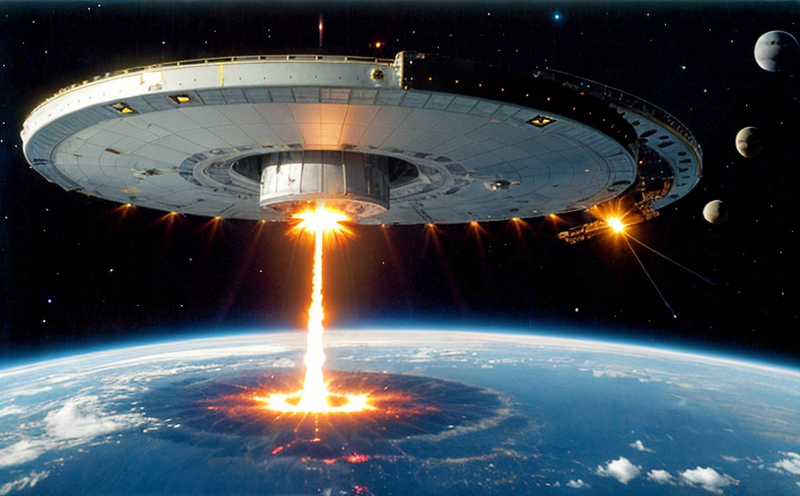ASTM F2008 Total Dose Testing of Non-Volatile Memories in Space
The ASTM F2008 standard is a critical tool used by the aerospace industry to ensure that non-volatile memories (NVMs) can withstand the harsh radiation environment encountered in space. This testing protocol simulates the total ionizing dose (TID), which is essential for protecting mission-critical electronics from degradation and failure during space missions.
Space radiation consists of charged particles, primarily protons and heavy ions, that can cause single-event upsets (SEUs) or permanent damage to electronic components. NVMs are particularly vulnerable due to their low error rates and the critical nature of the data they store. Failure in these devices could lead to catastrophic mission failures, such as lost spacecraft, compromised astronaut safety, or the failure of space-based communication systems.
The ASTM F2008 standard provides a methodology for testing NVMs under total dose conditions that mimic those found in orbit around Earth, including low-Earth orbit (LEO), geostationary orbit (GEO), and deep space. This testing ensures that the memory devices can retain their data integrity over the expected mission life, which is typically several years or more.
The test involves irradiating specimens with a variety of radiation sources to simulate different types and levels of space radiation exposure. The total dose received by the device during these tests must be carefully controlled to match the expected TID for the intended orbit. For example, an LEO mission might require significantly higher radiation exposure than a geostationary satellite because of the lower altitude and higher orbital velocity in LEO.
Specimen preparation is critical for ASTM F2008 testing. The test samples are typically packaged in a manner that allows them to be exposed directly to the radiation source while minimizing any potential contamination or degradation from external sources. This preparation ensures that the results of the test accurately reflect the expected performance in space.
The instrumentation used in ASTM F2008 total dose testing includes specialized irradiation facilities capable of producing a range of particle energies and fluxes. These facilities often use accelerators to generate charged particles, such as protons or heavy ions, which are then directed at the test specimens. The facility must also be able to measure the total dose delivered to the samples accurately.
The acceptance criteria for ASTM F2008 testing are stringent and designed to ensure that only devices capable of withstanding space radiation will pass the test. The primary criterion is the retention of data integrity after exposure to the specified total ionizing dose. If a device can retain its data without errors or corruption, it is considered合格





